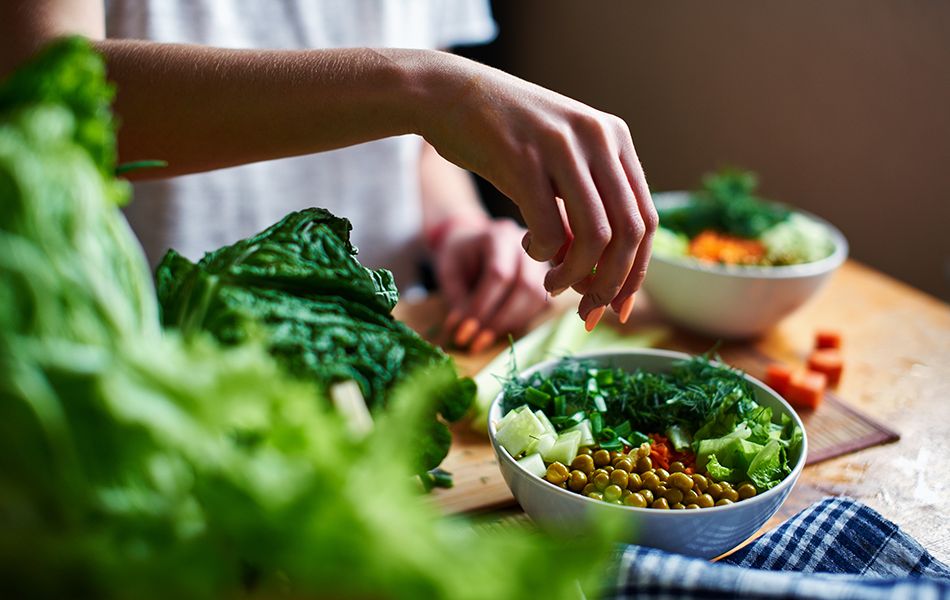How Cooking Impacts Nutrients in Food

Hey Angels and Alphas,
Ever since we first discovered fire, we humans have LOVED cooking. Throughout our long history, fire basically expanded our diets, allowing us to consume softer, tastier, and much safer foods.
To this day, cooking plays a massive role in how our body will digest, absorb, and use the nutrients we consume – and that’s what we’re here to discuss today.
How does cooking change our food? How can different cooking methods improve our health – or worsen it? How should we be cooking meat, veggies, and different types of food?
We’ll answer all these questions, but let’s start at the beginning…
What does chemistry say about how cooking changes the food we eat?
When we heat food, we change its texture and flavor… more often than not, for the better. As you can see with any example from the perfectly seared steak and the roasted veggies to delicious cakes, heating is at the center of every cooking endeavor.
When you cook food, you’re usually allowing for it to become a more easily digestible and readily absorbable source of nutrients. For example, the protein in cooked eggs is about 4 times more digestible than raw eggs (regardless of what you may have seen in movies like Rocky.)
And there’s always the issue with safety. Fruits and veggies, as we know, are all fine to eat raw with some exceptions. But when it comes to animal products like meat and eggs, cooking food is a must because it eliminates the bacteria that may cause foodborne illness. Cooking is absolutely essential when it comes to the safety of the food you eat since undergoing thermal processing is the best way for food to become safe and digestible.
What about the various cooking methods out there?
It’s a fact – not all cooking methods are created equal. You have boiling, steaming, frying, baking, all of which viable options for a variety of foods. Steaming is perhaps the best way to preserve nutrients when cooking food. Boiling, or poaching, are similar in the sense that they all require immersing the food in water (meaning it will retain the majority of its nutrients.) According to experts, vitamin C and some B vitamins can be lost in the water while cooking, but calling this a significant loss would be a stretch.
When you’re cooking with dry heat, when you’re broiling or grilling, some minerals can be lost when juice drips off the food while cooking. Grilling meat at extremely high temperatures can also form carcinogens, which should be avoided at all costs.
Then you have roasting and baking – both great ways to preserve the nutrients inside of whatever you’re cooking. But the longer something is being cooked, the greater the chance it will lose something in the process. Stir-frying is also known to be a great option for preserving nutrients.
Fun fact: when you’re cooking with fat, like olive oil, you’re improving the absorption of many plant compounds and antioxidants in veggies.
Microwaving is another form of “thermal processing”, and it’s actually a quick, safe, and easy way to cook food. Short cooking times, along with the reduced exposure to heat, allows the food to preserve most of its nutrient (and actually preserve more than it would with other cooking methods.)
When should you leave food raw?
For the most part, you want to be keeping your fruits and veggies raw. If you like them cooked, that’s fine, but most of the time, you won’t have to worry about having to make them easier to digest and enjoy.
When it comes to fruits and veggies, cooking can also improve the absorption of many antioxidants such as beta-carotene, lutein, and lycopene. This means you’ll basically get more of the nutrients when your veggies are cooked, and that includes tomatoes, carrots, and other orange and yellow produce.
Moreover, it’s a known fact that cooking asparagus and spinach allows their nutrients to become more bioavailable.
Raw (or very undercooked) legumes may contain a dangerous toxin called lectin, which can be easily eliminated by soaking and cooking.
And let’s not forget, the starch in potatoes is basically indigestible until it’s cooked.
So yes, cooking is a great option, even when you’re talking about all-natural fruits and veggies. But while it does produce many positive changes in the food we eat, there are definitely some ingredients that are healthier if you leave them untouched.
When it comes to raw broccoli or cabbage, they contain higher levels of antioxidants when consumed raw. Same with raw garlic – it includes anti-cancer sulfur compounds that degrade once they’re heated. That’s why raw onions are healthier than their cooked alternative.
The bottom line is…
That when it comes to fruits and veggies, cooking is mostly a choice. You won’t have to make your food easier to digest and absorb, which remains one of the main goals of cooking. Whether you prefer your veggies steamed, boiled, or raw, they’ll still be as healthy (with some exceptions.)
But when it comes to meats, cooking is not only an absolute necessity in terms of safety, but also a great way to add flavor in many different ways – be it grilling, frying, or baking.
Your best bet then, naturally, is to eat a varied diet that includes plentiful amounts of fruits and veggies, all prepared to your taste and fashion. Fortunately, with all the countless different heating methods, self-starting fire sources, and cooking options in front of you, you’ll have it much easier than our ancestors, and the food you eat will be much healthier and more delicious.





